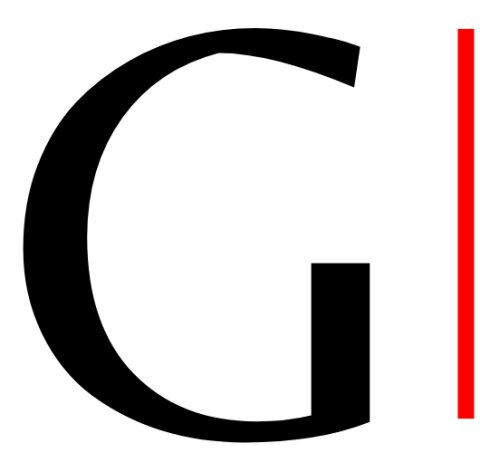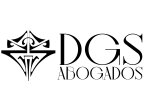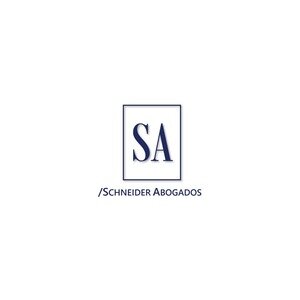Best Sanctions & Export Controls Lawyers in Las Condes
Share your needs with us, get contacted by law firms.
Free. Takes 2 min.
List of the best lawyers in Las Condes, Chile
About Sanctions & Export Controls Law in Las Condes, Chile
Sanctions and export controls are legal measures designed to regulate and sometimes restrict the movement of goods, services, and technology across international borders. In Las Condes, a prominent business district of Santiago, Chile, these laws help ensure compliance with both national and international obligations. They aim to safeguard national security, support foreign policy goals, and prevent unlawful trade practices. Being a hub for international business and trade, Las Condes is subject not only to Chilean law but also to international agreements and the impact of sanctions imposed by countries such as the United States or the European Union. Compliance is crucial for every business that trades or cooperates internationally.
Why You May Need a Lawyer
You may require a lawyer skilled in sanctions and export controls for many reasons. For example, if your business deals with cross-border trade, you must ensure your transactions do not violate Chilean or foreign sanctions. Lawyers can assist in due diligence, conduct risk assessments, and offer advice on whether specific transactions or exports are permitted. If your company’s goods or services have dual-use purposes (civilian and military), you may need help navigating export license requirements. Additionally, unintentional violations can result in severe penalties, including fines and loss of export privileges, so legal representation is another layer of protection. Finally, if authorities begin an investigation or impose enforcement actions, having an experienced legal advisor is essential.
Local Laws Overview
Chilean law regulates sanctions and export controls through a network of statutes, decrees, and international commitments. The Ministry of Foreign Affairs and the National Customs Service are the primary regulatory bodies overseeing compliance in Las Condes and countrywide. Key points include:
- Chile enforces United Nations Security Council sanctions and participates in international export control regimes such as the Wassenaar Arrangement (for conventional arms and dual-use goods) and the Chemical Weapons Convention.
- Exports of certain goods, particularly military equipment and sensitive technology, require licenses or special permissions.
- Trading with individuals or companies listed on international sanctions lists is strictly prohibited.
- Financial institutions and exporters must implement compliance programs to prevent violations.
- Penalties for non-compliance may include criminal charges, administrative fines, forfeiture of goods, and reputational damage.
Frequently Asked Questions
What are sanctions and export controls?
Sanctions restrict business or economic activity with certain countries, entities, or individuals for policy or security reasons. Export controls limit the distribution of specific goods, technology, or services to control their proliferation or misuse.
Who enforces sanctions and export controls in Chile?
The Ministry of Foreign Affairs, the National Customs Service, and relevant regulatory agencies are in charge of enforcement and licensing in Chile, including the Las Condes area.
Do I need an export license for every international shipment?
Not every shipment requires a license. However, you must obtain one if your goods are on controlled lists, are destined for certain countries, or have dual-use potential. Always verify with local authorities.
Can I trade with a company currently under international sanctions?
No. Trading with blacklisted entities or individuals is illegal and can result in severe penalties for you and your business.
What are the penalties for violating sanctions in Chile?
Penalties may include fines, confiscation of goods, criminal charges, and a ban from exporting or importing in the future.
How do I know which goods are subject to export controls?
Consult the official lists published by Chile’s regulatory bodies and international agreements. Legal counsel can also help determine the status of your products.
Are there exceptions to sanctions and export controls?
In some cases, exceptions apply, such as for humanitarian aid or under special licenses. These must be verified on a case-by-case basis.
How do Chilean rules interact with foreign sanctions?
Chilean law primarily enforces local and United Nations sanctions, but many Chilean companies also voluntarily comply with major international sanctions to avoid foreign penalties.
What steps should my company take to remain compliant?
Implement robust internal policies, provide staff training, conduct regular risk assessments, and consult with legal professionals to review business operations and contracts.
What should I do if authorities contact me about a possible violation?
Seek immediate legal advice. Do not respond or provide documents until you understand your rights and obligations with the help of an experienced lawyer.
Additional Resources
There are several key resources and organizations to assist those dealing with sanctions and export control issues in Las Condes:
- Ministry of Foreign Affairs of Chile - For regulations, updates, and lists of sanctioned entities.
- Servicio Nacional de Aduanas (National Customs Service) - Guidance on export requirements, customs procedures, and penalties.
- Embassies and international trade desks - For clarifications regarding dual or overlapping international sanctions.
- Professional legal associations - To find qualified lawyers focusing on international trade and sanctions law.
- Online legal databases - For access to current statutes, decrees, and regulatory updates in Chile.
Next Steps
If you believe you need legal help concerning sanctions or export controls in Las Condes, Chile, consider the following actions:
- Assess the nature of your matter - whether it concerns a current business operation, a potential regulatory inquiry, or employee training.
- Gather all relevant documents and information about your transactions or situation.
- Contact a legal specialist with experience in sanctions and international trade controls.
- Discuss your situation openly, and ask about compliance audits or risk assessments if you operate a larger business.
- Stay informed about changes in local and international regulations and update your compliance and training programs regularly.
Lawzana helps you find the best lawyers and law firms in Las Condes through a curated and pre-screened list of qualified legal professionals. Our platform offers rankings and detailed profiles of attorneys and law firms, allowing you to compare based on practice areas, including Sanctions & Export Controls, experience, and client feedback.
Each profile includes a description of the firm's areas of practice, client reviews, team members and partners, year of establishment, spoken languages, office locations, contact information, social media presence, and any published articles or resources. Most firms on our platform speak English and are experienced in both local and international legal matters.
Get a quote from top-rated law firms in Las Condes, Chile — quickly, securely, and without unnecessary hassle.
Disclaimer:
The information provided on this page is for general informational purposes only and does not constitute legal advice. While we strive to ensure the accuracy and relevance of the content, legal information may change over time, and interpretations of the law can vary. You should always consult with a qualified legal professional for advice specific to your situation.
We disclaim all liability for actions taken or not taken based on the content of this page. If you believe any information is incorrect or outdated, please contact us, and we will review and update it where appropriate.













